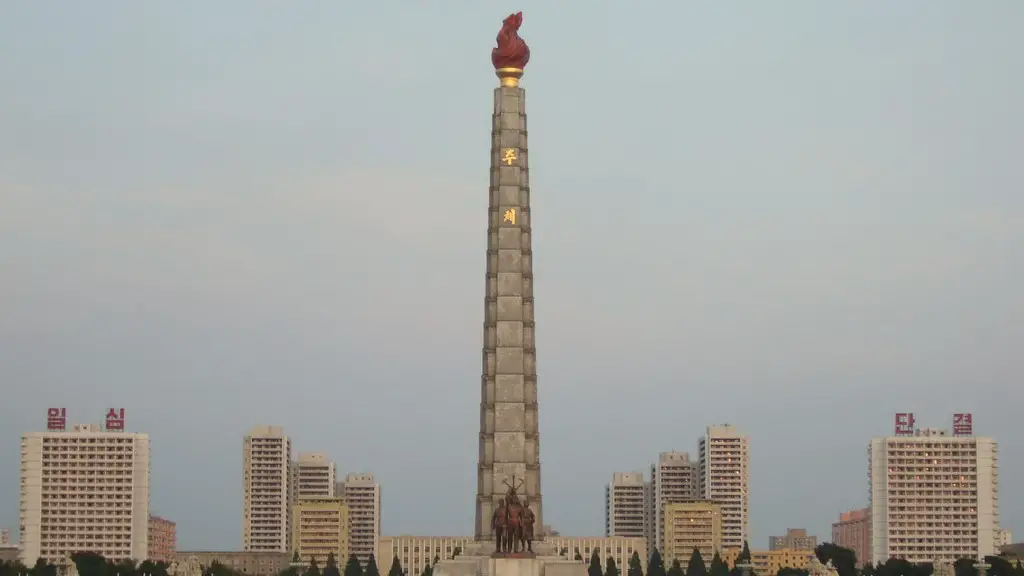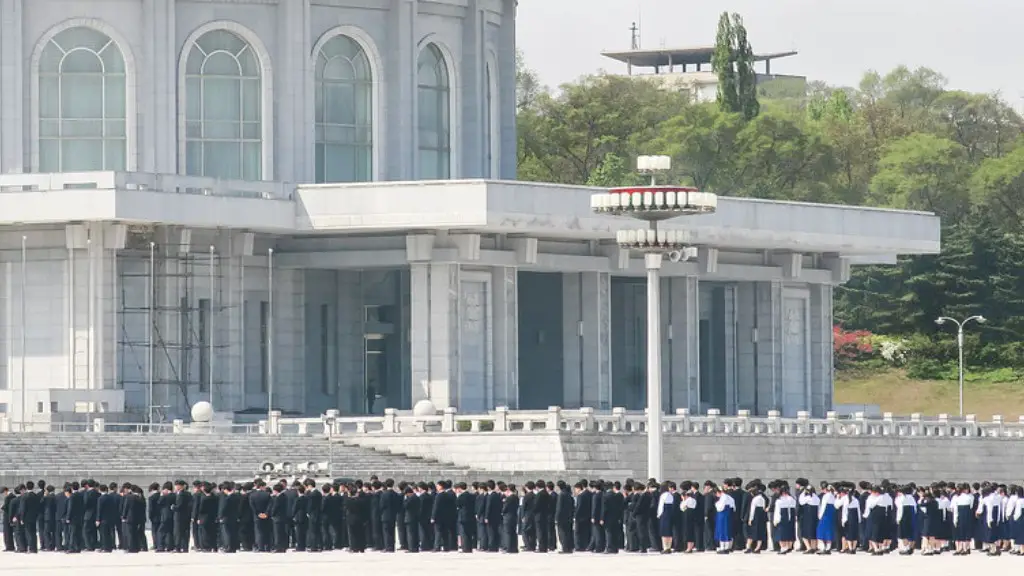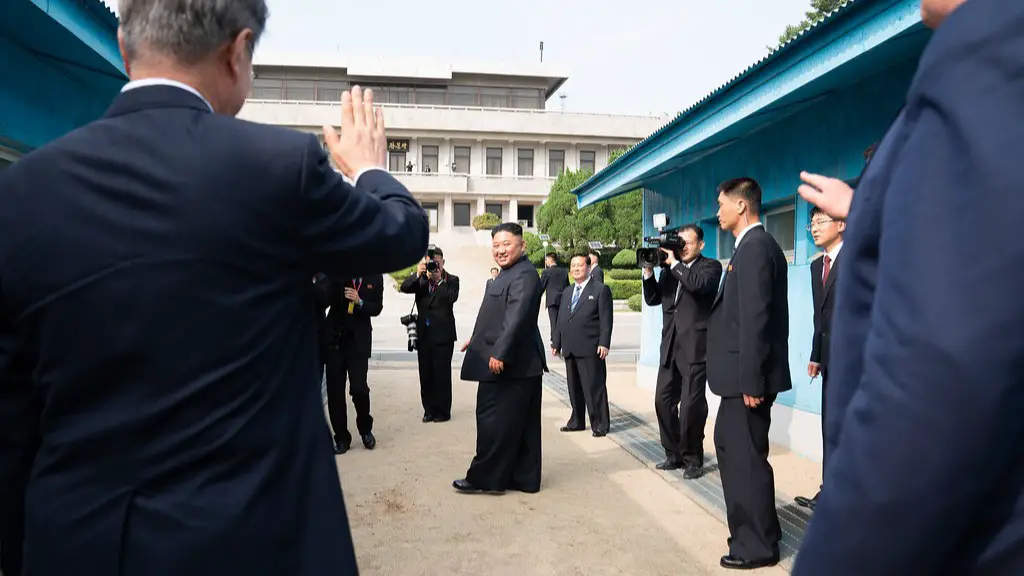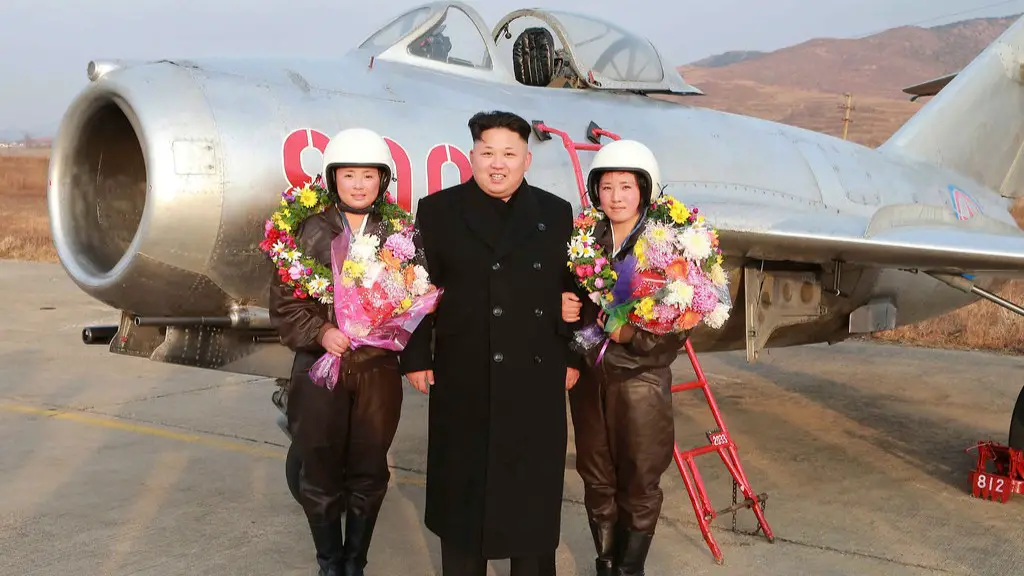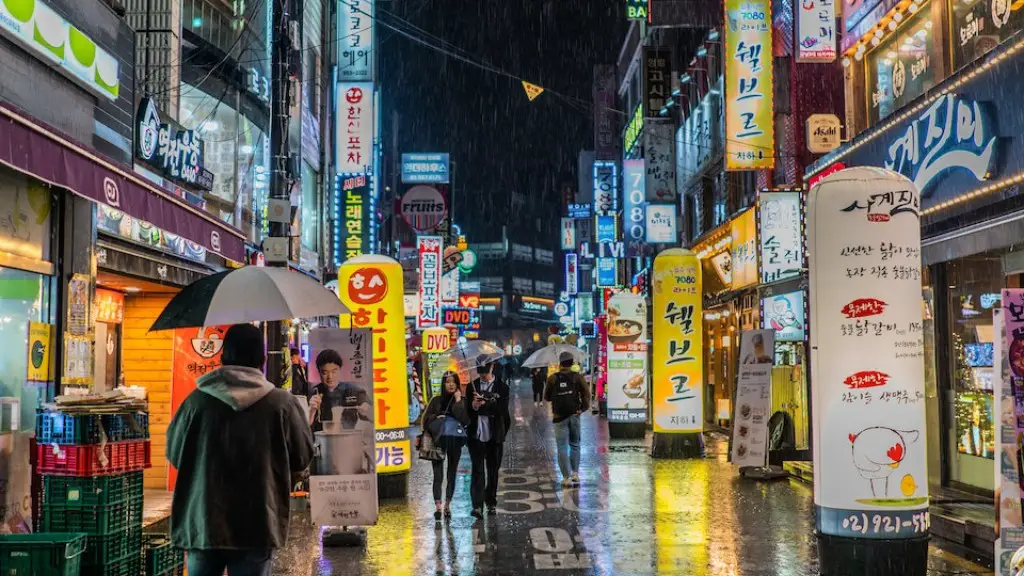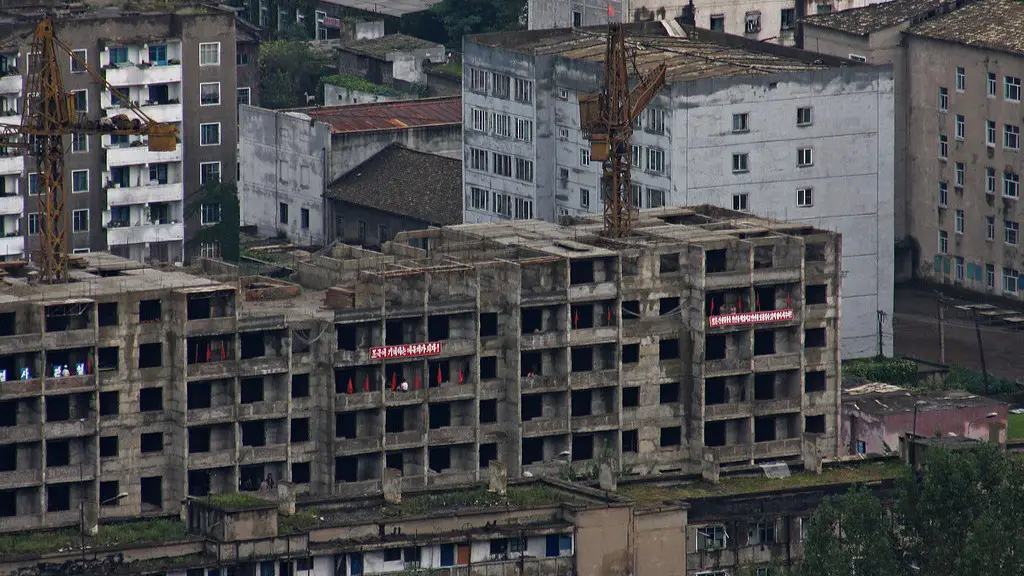North Korea, or the Democratic People’s Republic of Korea (DPRK), is a mysterious, isolated nation that has been ruled by one family, the Kims, for more than seven decades. With so much secrecy surrounding the inner workings of the North Korean state, who is the leader in North Korea?
The current leader of North Korea is Kim Jong-Un, the son of late leader Kim Jong-Il and the grandson of the founder of the North Korean regime, Kim Il-Sung. He officially took power after his father’s death in 2011, becoming the third Kim to rule North Korea.
Unlike his father and grandfather, Kim Jong-Un is seen as a much more flamboyant leader. He is one of the youngest leaders in the world and has forged a reputation as a modern, influential leader. He is known for his aggressive, militaristic stance as well as his push for economic reform.
Kim Jong-Un has firmly established himself as the leader of North Korea and commands complete loyalty from his citizens. He is seen as a figurehead of the nation, and his decisions and policies are followed without question. He has demonstrated a flair for grandiose gestures, and his frequent appearances in the media have magnified his stature in the eyes of the world.
Despite his larger-than-life public profile, Kim Jong-Un is far from a populist leader. His policies remain shrouded in secrecy, and he is known for his tight control of media outlets, restrictions on freedom of expression, and harsh punishments for dissent. He also retains firm control over the nation’s nuclear weapons program and is unyielding in the face of international pressure.
While Kim Jong-Un is the leader of North Korea, he does not rule in isolation. He has established a regime around him that includes powerful military and political figures. His chief aides include Premier Pak Pong-Ju, Supreme People’s Assembly President Choe Thae-bok, and Supreme People’s Assembly Vice-President Kim Yong-Nam.
In addition to his inner circle, Kim Jong-Un is aided by the Workers’ Party of Korea, North Korea’s ruling party since 1946. The party works to ensure the consistent adherence to Kim Jong-Un’s policies and is primarily responsible for promoting the nation’s ideology and national objectives. The party also oversees the country’s internal security apparatus, which maintains strict control over the population.
The Evolution of Kim Jong-Un’s Authority
Not long after taking power, Kim Jong-Un began a series of reforms intended to consolidate his political power. He replaced many of his father’s advisers with loyalists and loyal family members. He then introduced new titles and offices, such as the positions of vice-marshal and marshal, to give him more authority. He also created a new position, the chairman of Workers’ Party Central Committee, to facilitate policy implementation and coordination. Finally, he gave himself the title of “supreme leader”.
These moves were widely seen as a power grab, making Kim Jong-Un the undisputed leader of North Korea. He has since used this power to exert even more control over the nation, with a particular focus on consolidating power within his own family. He has appointed family members to key positions in the government and has continued to strip away the power of more experienced advisers.
Kim Jong-Un’s power has also been bolstered by his embrace of new technology. Under his rule, North Korea has become increasingly digitized, with a greater focus on the Internet, mobile phones, and other forms of modern communication. This has allowed him to reach a wider audience and to spread his propaganda more effectively.
Despite his efforts to modernize the nation, much of the population remains largely unaware of the outside world. Kim Jong-Un has implemented a strict censorship regime that ensures that the population is exposed only to officially sanctioned information. This has allowed him to maintain a firm grip on power while keeping his people largely in the dark.
Kim Jong-Un’s Propaganda Campaign
A major part of Kim Jong-Un’s efforts to consolidate power has been his use of propaganda. He has sought to promote a cult of personality around himself and to portray himself as a benevolent leader who is providing for the people of North Korea. He has utilized a variety of techniques, from traditional posters and public appearances to more modern forms of media, such as television and the Internet.
At the same time, he has sought to discredit his opponents. Through his propaganda, he has sought to portray foreign nations as hostile powers and to reinforce the idea that North Korea is surrounded by enemies. At the same time, he has sought to strengthen patriotism and to emphasize the need for unity and obedience to the government. He has also sought to demonize anyone who challenges his authority.
Kim Jong-Un’s propaganda campaign has been highly successful in maintaining his power and influencing public opinion within North Korea. His message of strength and nationalism has resonated with the population, and his efforts to discredit his opponents have helped to reinforce the idea that any dissent will not be tolerated.
North Korea’s Relations with the World
Kim Jong-Un’s rule has been marked by uneasy ties with the outside world. While the country is notorious for its human rights abuses and its nuclear weapons program, he has made efforts to improve relations with other nations. He has sought to open up North Korea’s economy and has taken steps to improve relations with the United States and its allies.
However, Kim Jong-Un’s efforts have not consistently yielded results. Despite his conciliatory gestures, North Korea remains largely isolated from the rest of the world. It continues to be a pariah state and its nuclear ambitions remain a source of deep concern. As such, its relations with the outside world are likely to remain strained in the foreseeable future.
Kim Jong-Un’s rule has also had a significant effect on the relationship between North and South Korea. After decades of animosity between the two countries, Kim Jong-Un has sought to improve relations with the South. He has met South Korean officials and given speeches calling for unification. However, concrete steps towards unity have yet to be taken, and tensions remain high.
In addition, Kim Jong-Un is likely to face international pressure for his human rights abuses and for his nuclear ambitions. The United Nations has criticized him for these violations, and it is likely that this criticism will continue in the future. As such, North Korea’s relations with the rest of the world are likely to remain strained.
The Future of North Korea Under Kim Jong-Un
Kim Jong-Un has been ruling North Korea for eight years now, and it is clear that he is determined to remain in power for the foreseeable future. Despite his efforts to open up the economy and improve relations with the outside world, his rule is likely to remain authoritarian and oppressive.
At the same time, there is hope that North Korea may eventually move towards greater openness and democracy. Kim Jong-Un has made efforts to improve the economy and to open up the media landscape. If these efforts are successful, it is possible that North Korea could become more open and democratic in the future.
Regardless of what the future holds, it is clear that Kim Jong-Un is firmly in control of North Korea. He is the undisputed leader of the country and his rule is unlikely to be challenged any time soon. As such, it is likely that Kim Jong-Un is set to remain the leader of North Korea for the foreseeable future.
The Impact of Kim Jong-Un’s Rule
Kim Jong-Un’s rule has had a significant impact on North Korea’s economy and society. He has sought to improve the country’s economy by introducing market-oriented reforms. These reforms have enabled the country to attract foreign investment and to develop new industries.
At the same time, Kim Jong-Un’s rule has also had a detrimental effect on North Korea’s human rights situation. Despite his efforts to improve relations with the outside world, his oppressive rule has led to widespread violations of human rights. This includes the jailing of political prisoners, the repression of freedom of speech, and the forced labor of North Korean citizens.
Finally, Kim Jong-Un’s rule has had a destabilizing effect on the region. His militaristic stance has led to increased tensions with other nations, particularly the United States and its allies. This has had a profound effect on the global political landscape, and many countries are watching North Korea warily.
International Sanctions Against North Korea
The ongoing tension between North Korea and the international community has led to the imposition of economic sanctions. These sanctions, imposed by the United Nations and individual countries, are intended to pressure the North Korean government to abandon its nuclear weapons program and to improve its human rights record.
So far, the sanctions have had a limited impact. Kim Jong-Un’s regime has largely been able to circumvent the sanctions and continues to pursue its nuclear ambitions. It is also unlikely that the sanctions will have any meaningful impact on the country’s human rights situation.
Despite the limited success of the sanctions, many countries are still determined to continue the pressure on North Korea. It is clear that any meaningful change in the country’s situation will only come through sustained international pressure.
The Lasting Legacy of Kim Jong-Un
Kim Jong-Un’s rule has been marked by militarism, repression, and international tension. Despite his occasional efforts to improve relations with the outside world, his rule is likely to remain authoritarian and oppressive. As such, it is likely that his legacy will be one of instability and tension.
At the same time, it is possible that Kim Jong-Un’s rule could eventually lead to greater openness and democracy. Through his modernizing efforts, he could pave the way for North Korea to become a more open and democratic society. However, this is not likely to happen anytime soon, and it remains unclear what the future holds for North Korea.
